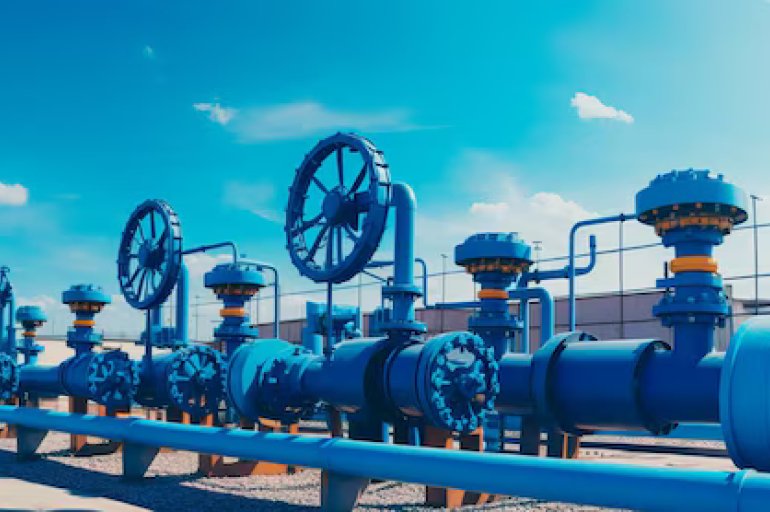Choosing the Right Valve: Key Selection Criteria for Optimal Performance

About Valves
In industries ranging from oil and gas to pharmaceuticals, valves play a
critical role in controlling the flow of liquids, gases, and slurries. These
components are essential for ensuring the smooth operation of processes and
systems. However, with a wide variety of valves available on the market,
selecting the right one can be a daunting task. To achieve optimal
performance and efficiency, it's crucial to consider several key factors
during the valve selection process. In this article, we'll explore some of
the most important criteria to keep in mind when choosing valves for
industrial applications.
1. Fluid Characteristics:
Understanding the properties of the fluid being handled is paramount when
selecting a valve. Factors such as viscosity, temperature, pressure,
corrosiveness, and particulate content can significantly impact the choice
of valve material, design, and configuration. For instance, corrosive fluids
may require valves made from specialized alloys, while high-temperature
applications may necessitate valves with enhanced heat resistance.
2. Flow Requirements:
The flow rate and pressure drop across the valve are crucial considerations.
Different valve types exhibit varying flow characteristics, such as linear,
equal percentage, or quick-opening. It's essential to match the valve's flow
characteristics with the specific requirements of the application to ensure
optimal control and efficiency. Additionally, selecting the right valve size
is critical to avoid flow restrictions or excessive pressure drops that
could impair system performance.
3. Operating Conditions:
Valves must operate reliably under the conditions they are subjected to.
Factors such as ambient temperature, pressure variations, vibration, and
potential exposure to corrosive atmospheres must be taken into account.
Valves rated for specific pressure and temperature ranges should be selected
to ensure safe and efficient operation even under challenging conditions.
4. Material Compatibility:
Compatibility between the valve materials and the fluids being handled is
essential to prevent corrosion, contamination, or degradation of the process
media. Valves are available in a wide range of materials, including
stainless steel, brass, carbon steel, and various plastics. Careful
consideration should be given to material selection to ensure compatibility
with both the process fluid and the surrounding environment.
5. Valve Type:
Different valve types offer distinct advantages and are suitable for
specific applications. Common types include globe valves, ball valves, gate
valves, butterfly valves, and check valves, each with its unique features
and operating principles. Factors such as shutoff capability, throttling
ability, ease of maintenance, and installation requirements should be
evaluated when selecting the appropriate valve type for a given application.
6. Actuation Method:
Valves can be manually operated or actuated using various mechanisms such as
pneumatic, electric, hydraulic, or solenoid actuators. The choice of
actuation method depends on factors such as process automation requirements,
response time, reliability, and availability of power sources. Automated
valves offer advantages in terms of remote operation, precise control, and
integration with control systems, but they may also incur higher initial
costs and require additional maintenance.
7. Reliability and Maintenance:
Reliability is paramount in industrial applications where downtime can
result in significant production losses. Choosing valves from reputable
manufacturers known for quality and reliability is crucial to ensure
long-term performance and minimize the risk of unexpected failures.
Additionally, ease of maintenance, availability of spare parts, and access
to technical support should be considered to facilitate timely repairs and
minimize downtime.
8. Regulatory Compliance:
Compliance with industry standards and regulations is essential to ensure
the safety, reliability, and environmental sustainability of industrial
processes. Valves used in critical applications may need to meet specific
certification requirements, such as API, ASME, ISO, or FDA standards. It's
essential to verify that selected valves comply with relevant regulations
and standards applicable to the industry and geographic location.
9. Cost Considerations:
While cost is an important factor, it should not be the sole determinant in
valve selection. Instead, a comprehensive cost-benefit analysis should be
conducted, considering factors such as initial purchase price, lifecycle
costs, energy efficiency, maintenance requirements, and potential downtime
costs. Investing in high-quality valves that offer superior performance and
reliability may result in long-term cost savings and operational benefits.
10. Future Expansion and Flexibility:
Anticipating future needs and potential system expansions is crucial when
selecting valves. Choosing modular valve designs that allow for easy
upgrades, modifications, and scalability can help accommodate future changes
in process requirements or capacity expansions. Additionally, selecting
valves from manufacturers with a diverse product portfolio and a track
record of innovation ensures access to advanced technologies and solutions
as needs evolve.
In conclusion, selecting the right valve for industrial applications
requires careful consideration of various factors, including fluid
characteristics, flow requirements, operating conditions, material
compatibility, valve type, actuation method, reliability, regulatory
compliance, cost considerations, and future flexibility. By thoroughly
evaluating these criteria and working closely with knowledgeable suppliers
and engineers, businesses can ensure the optimal performance, efficiency,
and reliability of their systems while minimizing risks and maximizing
operational uptime.
When it comes to valve manufacturing, one company that stands out is Oswal
Industries Limited. With a reputation for quality, innovation, and
reliability, Oswal Industries Limited offers a comprehensive range of valves
designed to meet the diverse needs of industrial applications. Their
commitment to excellence, adherence to industry standards, and focus on
customer satisfaction make them a trusted partner for businesses seeking
top-notch valve solutions. Whether it's for oil and gas, chemical
processing, water treatment, or any other industry, Oswal Industries Limited
delivers valves that excel in performance, durability, and efficiency,
making them the best choice for companies striving for excellence in their
operations.
